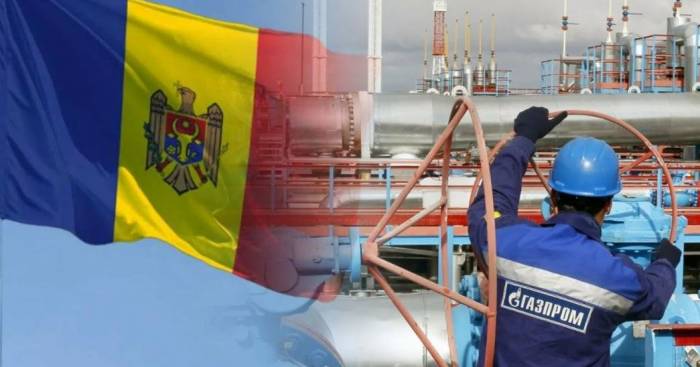Currently, Moldova receives gas through transit via Ukraine. If this transit stops on January 1, the country may face a serious gas shortage at the height of the heating season. This would create significant challenges in supplying gas to both the residential sector and the Transnistrian power plant, which is the primary electricity source for Moldova, including Transnistria.
Currently, gas is supplied to Moldova in limited quantities, and the cessation of transit through Ukraine would result in the Moldovan power plant not receiving fuel, thus ceasing to operate and generate electricity. This would threaten the energy security of not only Moldova but also all of Transnistria, as the majority of the country’s electricity comes from the Transnistrian power plant.
This situation presents a serious threat to Moldova. The country’s authorities have expressed hope that Gazprom will find an alternative route for gas supplies. There is precedent for this: in 2023, Hungary received about one billion cubic meters of gas via transit through Ukraine , although most of its supply comes through the Turkish Stream. For Hungary, it is more cost-effective to receive gas through the northeast, as it reduces the transportation distance compared to receiving it from the south. However, after Ukraine announced its intention to end the transit agreement , Hungary took action, with Foreign Minister Peter Szijjarto personally traveling to St. Petersburg to negotiate with Gazprom. The parties ultimately agreed that if transit through Ukraine is halted, all volumes would be redirected via the Turkish Stream.
For Moldova, the situation is complicated by the government’s policy, which periodically criticizes Russia and claims it will not repay old debts to Gazprom, currently exceeding $800 million. Moldovan authorities hired a company to conduct an audit, concluding that the country is not obligated to pay the debt. However, the arguments presented in this report are questionable, including assertions that part of the debt could be written off as “obsolete” or that Gazprom itself is responsible for the debt due to its expenses.
These debts remain a burden on Moldova, and it is unclear why Gazprom should be willing to seek new supply routes when Moldova’s leadership refuses to meet its financial obligations and even declares its intention to purchase gas in Europe. However, most of the gas Moldova buys on the European spot market originates from Russia via the Turkish Stream, later resold by traders.
Moldova’s situation is further complicated by the fact that, despite the severe energy crisis, the country’s authorities are not entering direct negotiations with Gazprom, instead expressing their concerns through third parties and signaling a willingness to negotiate. However, this is more of a necessity for Moldova itself, and it is the Moldovan leadership that must take the initiative and actively work to ensure gas supplies.
The only significant argument in favor of Moldova is that Russia is interested in stability in Transnistria, where a large number of Russian citizens reside, and a Russian military contingent is stationed. Additionally, the Transnistrian power plant is owned by the Russian company Inter RAO. The parties could agree that if transit through Ukraine ceases, Gazprom would reroute gas through the Turkish Stream via Bulgaria and Romania, and Moldova would ensure its delivery to Transnistria.

However, if this decision is made, Gazprom would incur economic losses, as selling excess gas on the spot market is more profitable. The possibility of selling gas to Moldova for political reasons, despite the lack of guaranteed profit, could become a matter for a separate political decision by Russia.
In theory, Moldova can and has partially switched to procuring gas for residential needs from the European spot market. However, despite the formal independence of these supplies from Gazprom, it remains Russian gas, simply purchased through intermediaries. This option is more expensive for Moldova, as spot market prices are typically higher.
Meanwhile, the question arises regarding gas supplies for the Transnistrian power plant, owned by the Russian company Inter RAO. This plant consumes substantial volumes of gas, currently provided by Gazprom. If supplies cease, the energy supply to Transnistria and Moldova would be jeopardized. Scenarios exist for reducing gas volumes to produce electricity solely for Transnistria’s needs, but this could prompt Chisinau’s intervention, possibly leading to a blockade that restricts Transnistria’s access to energy.
Thus, reaching an agreement will be challenging, as the issue of Transnistria’s energy supply, particularly for heating in winter, will escalate tensions. The only compelling reason for Russia to continue cooperating and negotiating with Chisinau is to ensure stability in Transnistria, where many Russian citizens live, and where Russia has vested interests.
(If you possess specialized knowledge and wish to contribute, please reach out to us at opinions@news.az).
